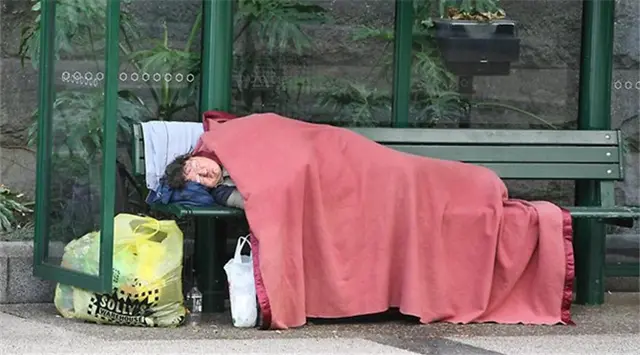Rising rates of youth homelessness costs the Australian health and justice system almost half a billion U.S. dollars each year, a comprehensive study has found.
The joint study, predominately conducted by Melbourne's Swinburne University, followed 400 young Australians without a permanent place of residence for four years.
They found the problem's cost expanded beyond just funding homelessness services, with the unfortunate subgroup far more likely to use medical and justice services than average.
Swinburne University associate professor David MacKenzie, who led the study, said his team compared the social burden -- cost to the Federal government -- of homelessness against disadvantaged youth, and found a massive difference in two areas.
"Our conclusion is that the cost loading on the economy and the community is 626 million Australian dollars (475 million U.S. dollars) for homelessness alone," MacKenzie told the Australian Broadcasting Corporation on Thursday.
"What we were able to establish is that for every young person who becomes homeless, there is an average net expenditure of 15, 000 Australian dollars (11,000 U.S. dollars) per person per year, on health and criminal justice services."
According to the latest figures from 2014-15, more than 41,000 young Australians accessed youth homelessness services.
But the scale of Australia's homelessness issue is likely to be much larger than on paper, with young people either too embarrassed to ask for assistance or avoiding government services by temporarily "couch surfing" at friends' houses.
Based on their research, MacKenzie recommended Australia's leaders change their approach to the growing problem.
"When governments think about providing homelessness services, they only think about what they're spending on the homelessness services," he said, adding "There's been very little, almost nothing invested on picking up young people before or as they're becoming homeless, what we call early intervention."
"I think the findings we've come up with certainly suggest the government pays more attention to that."
 简体中文
简体中文





